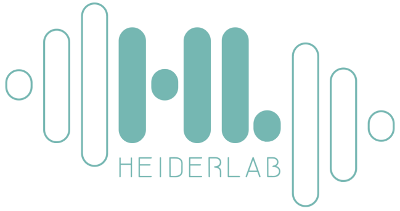CORona Drug InTEractions database
Rationalizing Viral Drug Target Identification Using Computational Approaches : The SARS-CoV-2 Spike Glycoprotein S Case Study
Petr Popov, Pavel Buslaev, Igor Kozlovskii, Mark Zaretskii, Dmitry Karlov, Alexander Morozov
Abstract
COVID-19 emphasized the need for fast reaction tools to fight global biological threats such as viruses. Rapid drug discovery is one of the strategies for efficient social response. The success of a drug discovery campaign critically depends on the selected drug target, and the wrong target nullifies all the efforts to develop a drug. Viral drug target identification is a challenging problem, and computational methods can reduce the number of candidate targets. Here we present a structure-based approach to identify vulnerable regions in viral proteins that comprise drug binding sites. To detect promising binding sites, we take into account protein dynamics, accessibility, and mutability of the binding site, coupled with the putative mechanism of action of a drug. Applying to the SARS-CoV-2 Spike Glycoprotein S, we observed conformation- and oligomer-specific glycan-free binding site that is proximal to the receptor binding domain and comprises topologically important amino acid residues. Molecular dynamics simulations of Spike in complex with drug-like molecules docked into the binding sites revealed shifted equilibrium towards the inactive conformation compared to the ligand-free simulations. Small molecules targeting this binding site could prevent the closed-to-open conformational transition of the Spike protein, thus, allosterically inhibit the interaction with the human angiotensin-converting enzyme 2 receptor.
Source: ChemRxiv
Related molecules
| Name | Synonyms | Genes |
|---|---|---|
| Spike glycoprotein | Spike protein, S glycoprotein, S-Protein, S1, S2, S3, Peplomer protein, E2 | S, ORF2 |
| Target | Target affiliation | Drug | Type | Result |
|---|---|---|---|---|
| Target | Target affiliation | Drug | Type | Result |
| Name | Synonyms | Genes | Origin |
|---|---|---|---|
| Name | Synonyms | Genes | Origin |
| Name | Synonyms | PubChem | DrugBank | RCSB PDB | ATC |
|---|---|---|---|---|---|
| Name | Synonyms | PubChem | DrugBank | RCSB PDB | ATC |
| Title | Authors | DOI | Source | Article type | Date |
|---|---|---|---|---|---|
| Title | Authors | DOI | Source | Article type | Date |
| Title | Status | Phases | Start Date | Prim. Comp. Date | Comp. Date | First Post. Date |
|---|---|---|---|---|---|---|
| Title | Status | Phases | Start Date | Prim. Comp. Date | Comp. Date | First Post. Date |
CORDITE (CORona Drug InTEractions database) collects and aggregates data from PubMed, MedRxiv, BioRxiv, ChemRxiv and PMC for SARS-CoV-2. Its main focus is set on drug interactions either addressing viral proteins or human proteins that could be used to treat COVID. It collects and provides up-to-date information on computational predictions, in vitro, as well as in vivo study data.
The information provided is for research only and we cannot guarantee the correctness of the data.
Please contact dominik.heider@uni-muenster.de for further information.
Programmable access
There is an open API for access programmatically to the database. The API will print a JSON output:
- Interactions
https://cordite-api.uni-muenster.de/api.php?action=list&table=interaction
- Targets
https://cordite-api.uni-muenster.de/api.php?action=list&table=target
- Drugs
https://cordite-api.uni-muenster.de/api.php?action=list&table=drug
- Publications
https://cordite-api.uni-muenster.de/api.php?action=list&table=publication
- Clinical trials
https://cordite-api.uni-muenster.de/api.php?action=list&table=clinical_trial

